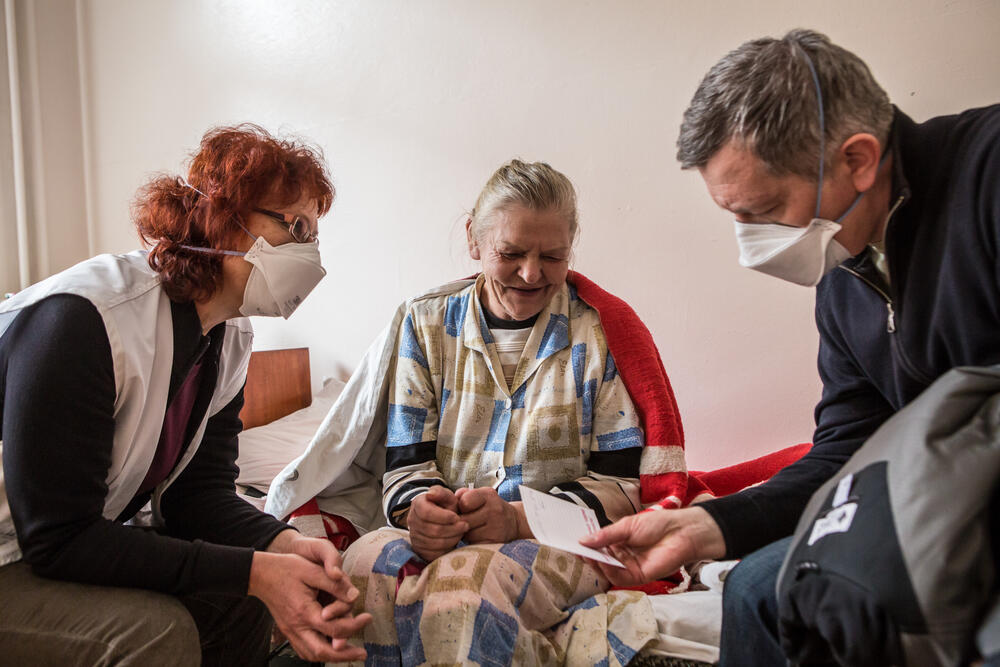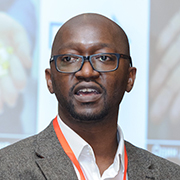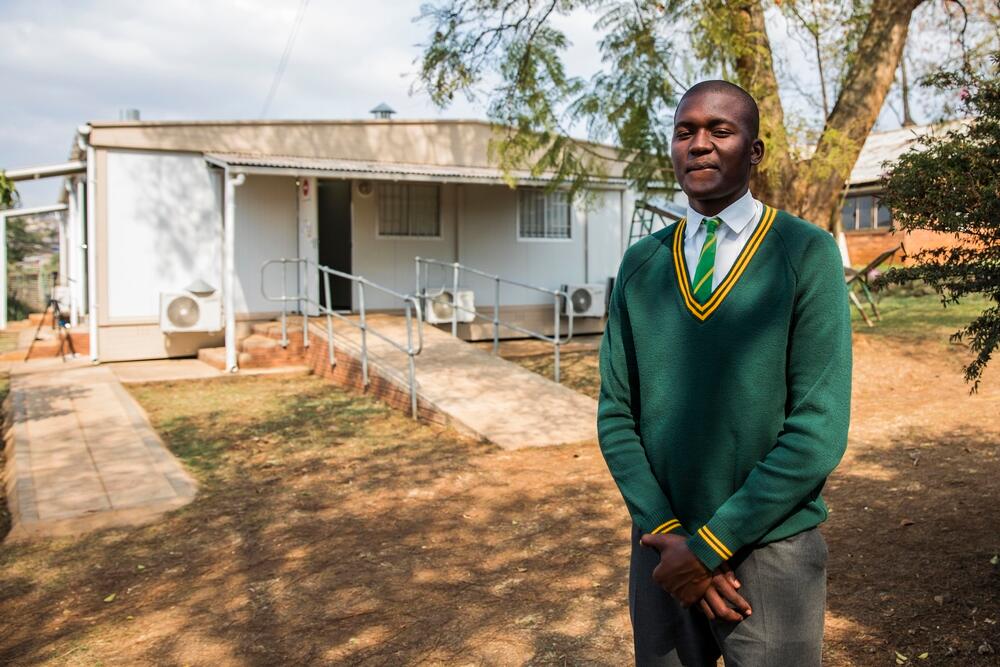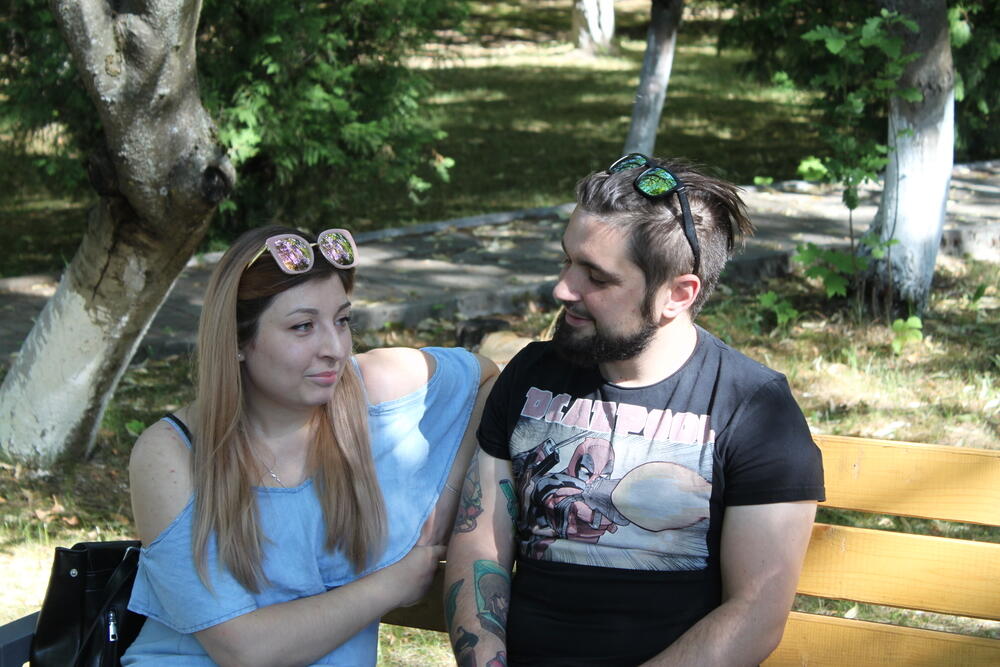“Our patients deserve better”: Improving treatment for drug-resistant tuberculosis
“I have my life back.” This is what some patients have told us over the course of TB PRACTECAL, a clinical trial led by Médecins Sans Frontières / Doctors Without Borders (MSF) to find better treatments for multidrug-resistant tuberculosis (MDR-TB).
MSF has been pushing for treatment for MDR-TB since the late 1990s. However, the side effects of the medicines people currently take for MDR-TB are often described as worse than the disease itself. These include nausea, headaches, deafness and psychosis.
Patients take up to 20 pills a day, alongside painful injections, and treatment can last up to two years. Over the course of their treatment, some patients aren't able to go to work, socialise, or even visit public places. Their lives are put on hold.
And after all that, only about half of people with MDR-TB are cured. It’s not good enough. That’s why MSF took the decision to launch TB PRACTECAL in 2017.
Today, I’m delighted to announce that the trial has led to a new all-oral six-month treatment regimen that is easier to take, safer, and much more effective against the disease.
“We needed to do something”
When I began working with MSF in the early 2000s, there was no treatment for MDR-TB. It was believed that if drug-susceptible TB was adequately treated, MDR-TB would disappear on its own.
We were using drugs for TB that had existed since the 1950s, treatments that were incredibly toxic and had awful side-effects, including depression and suicide. But that was all we had.

Help us prepare for the next emergency
We thought that if we could better manage the side-effects and provide adequate adherence support then things would get better. We invested everything. But the outcomes were still poor, with just one in two people being cured.
"Eighty-nine percent of patients who took the combination were cured compared to 52 percent in the control group"
It’s hard for clinicians and doctors to put patients through this treatment, but of course it’s much worse for our patients.
MDR-TB tends to affect people from some of the most disadvantaged communities MSF works with. In many cases, people have no idea what life will hold for them in two years’ time when their treatment is due to end.
When we began making plans for the TB PRACTECAL clinical trial, the TB treatment landscape at that moment was just not acceptable. We needed to do something about it.
Startling results
I was the lead investigator on the trial, which took place across seven sites in three countries: Belarus, South Africa and Uzbekistan. The first patient took their first pill in January 2017.
We tried three different regimens. From listening to our patients, we knew we needed to try and reduce the dose of one of the drugs used to treat MDR-TB, linezolid, to a level which we thought could be effective but at the same time non-toxic to patients.
That was risky because we could have ended up with regimens that weren’t working well enough. But we managed to hit the sweet spot.
The regimen we found to be the most effective was a combination of bedaquiline, pretomanid, linezolid and moxifloxacin (BPaLM) given orally over the course of six months.
Eighty-nine percent of patients who took the combination were cured compared to 52 percent in the control group who received the local standard of care at the trial sites.
I’m so thankful to the patients that agreed to take part in the trial. They put their trust in MSF and the trial teams to keep them safe and do what was best for them, with treatments that weren’t guaranteed to provide a cure.
Many patients agreed to take part because they wanted to help others with MDR-TB, and I think it’s important to recognise that.
And I’m hugely grateful to the people from 17 organisations who have worked on this trial – more than 200 people in all. It’s thanks to their dedication and belief that the trial will make a difference to the lives of people living with TB that has got us to where we are now.
Should MSF run clinical trials?
There are still people who question whether clinical trials should be a part of MSF’s work. Of course, we shouldn’t run clinical trials for the sake of it. But we should be able to get outside of our comfort zone and bring MSF resources to bear on making a real difference. Our patients deserve this.
This is even more clear in the time of the COVID-19 pandemic. COVID has been countered in an amazing way with vaccines and treatments within a very short timeframe.
Why hasn’t that happened to TB? Because the disease doesn’t affect the people who have the resources to deal with it.
So, as MSF, we need to fill that gap; it’s imperative for our patients.
The future of MDR-TB care
We were able to get TB PRACTECAL off the ground and deliver these results thanks to the support of our donors.
Most of the running costs for the trial came from donors who had given to our general fund. It reflects the trust that our supporters have in us to say: “This isn’t the type of project I initially saw myself donating to, but we really trust that you have people’s needs at heart. Therefore, here is the money for you to make those decisions.” For that, we are very thankful.
We also had a significant proportion of the funding from the Dutch National Postcode Lottery (NPL). We pitched a dream to the NPL, unsure if it would turn out to be a nightmare. But they trusted us and funded that dream, so we can’t thank them enough.
TB PRACTECAL is not over, we are carrying out some sub-studies related to the trial and will continue to provide care and check-ups for patients who are finishing their treatment. The last patient follow-up is scheduled for summer 2022.
In the meantime, we hope these results will serve as a major contribution to the evidence for TB treatment recommendations to be updated by the World Health Organization, giving a better chance for everyone living with MDR-TB.
TB PRACTECAL timeline
MSF and tuberculosis
MSF has been fighting TB for over 30 years. We provide treatment for the disease in many different contexts, from chronic conflict situations, such as Sudan, to vulnerable patients in stable settings such as Uzbekistan and the Russian Federation.
TB occurs in every part of the world, however, the vast majority of cases and deaths are in low- and middle-income countries. According to the World Health Organization, in 2019, around two-thirds of all TB cases occurred in just eight countries: India, Indonesia, China, the Philippines, Pakistan, Nigeria, Bangladesh and South Africa.
In 2020, MSF started 13,800 people on TB treatment, including 2,100 with drug-resistant TB.



